|
There's a saying that goes, "the more things change, the more they remain the same." This is especially true when it comes to opposition to animal shelter reform which doesn't seem to change much over the years. I wrote a blog in 2016 called The Burden of Change in which I talked about the arguments by opponents of No Kill animal sheltering that advocates must meet certain requirements in order to speak out about what is happening at tax-funded animal shelters. I shared the blog recently related to some advocates in Columbus, Georgia, who are trying to bring awareness to the animal shelter operation managed by the City of Columbus and opposition to that advocacy. I wrote the blog years ago and thought it worthwhile to touch on this subject again. People who advocate for reform of animal shelters are often told they cannot express their opinions unless they meet certain requirements. The typical push-back from shelter employees, shelter volunteers and some in the animal rescue community is that people have no right to criticize the shelter unless they:
Let's start with the obvious counter to the push-back. Everyone has a right to free speech under the First Amendment to our Constitution. Everyone. When it comes to operations funded by tax-dollars, those operations are inherently subject to public scrutiny and criticism, because the public is paying for those operations. The people employed in tax-funded animal shelters are public servants and are answerable to the public being served whether they like it or not. People complain about municipal functions funded by tax-dollars every day and think nothing of it. Road conditions, timing of traffic signals, response time of police and fire departments, conditions at public parks and venues, zoning regulations. We do not ask people to participate on a repaving crew before they are allowed to complain about a pothole in the road. We do not ask people to help mow at a city park before they are allowed to complain about broken equipment in the park. We do not ask people to help investigate crimes or help put out a fire using a garden hose before they are critical or a police or fire department. Animal shelters are the only tax-funded operations that rely so heavily on volunteers to perform tasks that would otherwise be performed by paid staff. Those volunteers are part of the No Kill Equation and are incredibly important to the well-being of the shelter animals. Volunteers also become the eyes and ears of the community as they interact with staff and the animals. But - news flash - being a volunteer is not a perquisite for free speech and having more volunteers is not a guarantee of a shelter's success. The No Kill Equation is 11 elements, and it is not just about people volunteering. Consider these examples. In one community, people are critical of the regressive animal shelter and are told they cannot have an opinion unless they volunteer. They do. They play with cats, walk dogs, clean kennels, do fundraisers and otherwise perform tasks that would be done by paid staff. They volunteer for months in an effort to help animals but are powerless to address systematic problems which cause the killing of healthy and treatable animals. They are told if they are openly critical of what they experience in the shelter, they will no longer be allowed to volunteer. In another community, people are critical of the regressive animal shelter and are told they cannot have an opinion unless they volunteer. They decide it would be more productive to educate themselves about No Kill philosophies and programs so that they can promote progressive sheltering with elected officials who oversee the shelter operation and educate the public about how their money is being spent in their name. This is what we did in Huntsville, Alabama. We were told we could not have an opinion unless we volunteered. We felt our time was better spent trying to resolve the systemic issues that led to the death in the first place. We were able to help bring about change through advocacy, something we never would have achieved through volunteering alone. There's another saying that says you're damned if you do and damned if you don't. I was criticized for years for not volunteering in the shelter. Once the shelter changed the culture and began saving more lives, I thought it was safe for me to volunteer so I did. I went to the shelter on my lunch break and walked dogs, I created short videos to help place dogs, I did fundraisers to help the shelter purchase supplies like slip leads and I encouraged other people to volunteer. It became immediately obvious to me that I was not welcome in the shelter by the staff and other volunteers due to my advocacy, but I continued volunteering anyway. It was about helping animals and not about me individually. I ultimately stopped volunteering when dogs I was trying to help were destroyed for "behavior" based on reasons that made no sense to me and after I received a nasty message from the volunteer coordinator. She criticized me for only walking what she called the highly adoptable dogs and told me I would "piss myself" if I interacted with the dogs she interacted with daily. I was tempted to respond that as an Army veteran, it takes a lot to cause me to lose control of my bladder but kept that to myself and walked away. I suspect that the city attorney would not have been happy with a volunteer claiming to be put in a dangerous position for the sake of a city department. My point is that I did not volunteer as a matter of principle. Then I did volunteer and even that was not enough to satisfy my critics which is no surprise at all. Nothing I could have done would have been enough for them so I choose to spend my time in other ways which I believe are actually productive. These include screening of city council candidates related to support of No Kill philosophies, data analysis, keeping the public informed of how their money is being spent, meetings with city officials and meetings with members of the city council to promote more shelter standards being codified to preserve the progress that has been made at the shelter and to keep the city from going back to a time when half the animals entering the building were destroyed. When people tell you that you have to do certain things before you have the right to free speech, that is a red flag. And while volunteers are incredibly important to animal shelters and are part of the No Kill Equation, volunteering alone does not reform a broken and antiquated model of animal sheltering. The burden of change is still not mine to carry and it is not the responsibility of people who have the audacity to speak out and ask for better use of tax dollars. You can stop telling us that if we would just be nicer or would just volunteer everything would change. No. Everything changes when those who are responsible for making life and death decisions regarding shelter animals choose life, take responsibility for what happens in their buildings and then invite the public they serve to be part of a new and better future. They can start by educating themselves about the No Kill Equation using this 27-minute video from the No Kill Advocacy Center called No Kill 101. While I do not require people who work in or volunteer in shelters to watch this video as a prerequisite to defending the killing of healthy and treatable animals in shelters, it makes perfect sense for them to use some of the time they would otherwise spend on social media defending the killing to instead educate themselves.
0 Comments
I wrote a blog a few years back about animal shelter apologists and the concept of cognitive dissonance. This was an effort to explain how people who claim to care about the lives of animals rationalize their support for animal shelters where healthy and treatable animals are killed. It’s been a while since I touched on this topic and Sheri Cahill of the Silver Comet Animal Welfare Alliance in Georgia asked me to revisit it. So when it comes to animal shelters, what is an apologist? That is a person who defends (in essence apologizing for) what happens at a regressive animal shelter – typically the killing of healthy and treatable animals - while at the same time professing to be passionate about saving the lives of animals. We see this all the time from shelter employees, shelter volunteers, people in the rescue community and from the public. It seems inconceivable that people who claim to want to save animals would come to the defense of the killing that takes place but it happens every day across the country. Apologists tell themselves that their shelter is somehow different from other places, making it impossible to save more lives. They tell themselves that the public in their area is more irresponsible than in other places, so the shelter has no option but to end the lives of animals. They tell themselves that there is just no other way for the shelter to function because of a shortage of talent or resources. The rationalizations go on and on. Trying to understand why people behave this way is way above my pay grade and no doubt would make for a great research study by someone in the field of psychology. There are times when the people who defend the killing of animals in shelters can be reached and can be educated. In my experience, these are the people who never felt quite comfortable with the killing, but just were not sure what to do about it. I’ve heard countless times from volunteers or rescuers that they did not condone what was happening at a particular shelter, but they did not speak out because they worried they would be cut off and would not be able to help animals any more. The most polite way I can address that reasoning is to say that it is incredibly short-sighted. It means that the focus of that person is on the dog or cat they are trying to help today or tomorrow, with no regard for the dozens, or hundreds or thousands of other animals they will not be able to help. In the most direct way I can address that reasoning is to say that there is a price to be paid for silence. In the city where I work and in which I lead an animal shelter reform advocacy group, more than 33,000 animals died from 2008 to the end of 2013 when the city began making changes to the culture at the shelter. 33,000. I feel confident that volunteers and rescuers thought they were doing all they could to help individual animals during those years. But the end result is that thousands of animals died and that process may have stopped earlier if the people closest to the issue had simply spoken up and encouraged the shelter to change. There are many times, however, when there is just no conversation to be had with people who defend the killing of healthy and treatable animals. These people are so committed to the reality they have created for themselves that there is no way to break down their walls with any amount of logic or information. It is these people who are the most aggressive in their defense of shelter killing and who are the most likely not only to blame the messenger for the message, but to go on the offensive to attack anyone who has the audacity to believe the shelter can save more lives. When my advocacy group in Huntsville, Alabama, began advocating for shelter reform in 2012, we ran into a host of apologists. The live release rate at the shelter at that time was about 34% which means that 2 out of every 3 animals entering the building were destroyed. It was at this time that the shelter director said she and her staff were doing a beautiful job. She said, “I am loved here” and the statement was true. As a veterinarian, she had a huge public following of people who either did not know what was happening at the shelter or who knew about it and were sure there was no other way to function. Animals had to be destroyed, they told themselves. There is no other way, they told themselves. I wrote about the opposition to shelter reform we faced in Huntsville in my book. It was ugly, it was juvenile, and in the end, it was futile. We expected shelter employees to be upset with our efforts to hold the city accountable for how the shelter was operated using tax dollars. What we didn’t expect was the level of animosity toward us from the rescue community. We were vilified, ridiculed, the subject of a hate page on Facebook and at one point we were referred to as terrorists. We knew engaging with these people was a complete waste of time and energy; we did our best to ignore them and stay on subject with city officials and with the public. Now that the city has changed the culture at the animal shelter, our critics have gone silent for the most part. Just like they had their own version of reality when so many animals were being killed, I presume they have their own version of reality about how that change happened. It is easier to revise history and to gloss over the difficult times than it is to admit that change came about as the result of struggle. As much as I think history is important so that we do not repeat it, my satisfaction comes from the fact that things did change as a result of advocacy. My focus is less on how we got to this point than the fact that the change has been drastic and empowering. The shelter now saves approximately 97% of all animals entering the building and my hope is that there is no going back. The public has come to expect the lives of animals to be saved instead of ended and it is that expectation that may do the most good to keep the city from reverting back to the way it was before. If you live or work in a city where the animal shelter destroys healthy and treatable animals for whatever reason, please consider speaking out against that. Your focus should be on municipal accountability for how tax dollars are spent (or not spent) and not on individual people, at least at the start. You may not get a bill in the mail every month with a line item for "animal disposal," but you are paying for what happens at your local shelter and you have the right to demand better. If you learn that there are others who want to bring about shelter reform, support those people and find ways to help them if you can.
If you are one of those people who are defending the killing of animals, please ask yourself what you hope to accomplish with that behavior. It may very well be that you have become a human obstacle to change. If that is the case, you are standing in the way of progress which means you are standing in the way of saving lives. Yes, you can save a few each month while telling yourself that if it wasn’t for you or people like you, more animals would die. That would be true. But if you consider the bigger picture, you can help prevent the deaths of thousands of animals. It’s time to make a choice and to walk the walk instead of just talking about what you say you stand for. All of us have crossroads in our lives. Points in our lives were some significant event happens that puts us on a path different from what we had anticipated. One crossroads for me was in 2006 after the euthanasia of 16-year old dog, Snake. We knew that she would not be able to stay. She had become trapped inside a body which no longer served her well and had begun having cognitive problems. We didn't want her to suffer. We had our veterinarian come to our house on April 22, 2006 to euthanize her. Although we had been planning for the day for quite some time, we didn’t choose the date ahead of time. She had had a rough night and we decided that morning to let her go. We didn’t realize until much later that we had chosen Earth Day to let her go. It seems fitting in many ways. Snake was a coydog; she was part German shepherd and a coyote. She was always a little bit of a wild child. We buried her on our property and gave her back to the Earth; a fitting farewell for such a beautiful soul. It was after the loss of Snake that events happened that I didn't anticipate in which put me on another path. As much as we prepare, we are never really ready to lose those we love. How can we be? I didn’t adjust well and found that I needed an outlet. I started donating to the animal shelter in the city where I work, hoping to help some other dog or dogs. It was only after donating to the shelter for a few months that I had an unwelcome epiphany about what was happening there. Healthy and treatable animals were being destroyed every day along with the sick and suffering. I guess I should have known this was happening, but I just didn't. I think that's common for a lot of people in America. We presume that shelters use our tax dollars to function consistent with public values when that is not always the case. I know what the word euthanasia means and what was happening at this shelter was far from it in most cases. Learning what was happening at my local shelter outraged me, angered me, and just made me feel tired and sad. But it also fueled me. I began a path of self-education. Why were animals who were perfectly healthy dying in shelters? Was it just something in the South? Was this happening everywhere? I just had to know these answers. My education took years and continues to this day. This journey of awareness led me to another crossroads. I had two choices. I could continue my education while lamenting what was happening. I could say the issue was just too big for me to take on myself. Or I could try to do something about it. In the end I decided I had to act because I saw it as a moral imperative. If I did not speak up, my silence would have been my consent. Exactly what I would do with my intent and knowledge would end up taking years. I originally wrote to City officials in 2006 to express my outrage at what was happening at the shelter and didn't get very far. I was pretty much told this is just the way things are and we can’t afford to do any better. I didn’t believe either statement. The city in which I work is Huntsville, Alabama. The community is both incredibly progressive and proud. People from other states and even other countries live here. We have a large military base and we support the space program through the Marshall Space Flight Center. We are considered a medical hub where people come to get specialized treatment. Considering all the great things happening in the city, surely we could break from the status quo and do a better job to save the lives of shelter animals. The city council did not agree. I was left to stew in what I had learned, continue my education and look for some other opportunity to be a change agent. I found this incredibly hard to do. With each passing day, the lives of animals were at risk. Animals just like Snake who no doubt would have been killed in the Huntsville shelter. The deaths of both my parents to cancer in a six-month period of time ended up being another crossroads for me. We lost dad in October of 2010. We lost mom in April of 2011. We knew they would leave us and tried to be ready. There is just no such thing. Like the loss of Snake, the loss of my parents put me in a different place in my life than I anticipated. For most of my life I had allowed myself to think that I would have decades left to spend time with my parents. I had always known that life was short and precious, but the loss of my parents quite suddenly really reinforced for me that my own time here is finite. I thought that in spite of personal failure to affect change in my area that I may do better if I got some help. That is when I decided to form an advocacy group called No Kill Huntsville. I believed that rather than speaking out about the issue by myself, surely there had to be strength in numbers. The group was pretty large when we started, but as is the case with many things, lots of people talk but only some people do. We ultimately ended up with a small group of like-minded folks who agreed to speak with one voice to try to effect change in our area. No Kill Huntsville is now and in our 10th year of advocacy. It hasn’t been easy, but we got what we hoped for: change. The changes which have been made at the tax-funded animal shelter are both shocking and incredibly rewarding. We always promoted, and still promote, the No Kill Equation first shared with the world by Nathan Winograd in his 2009 book called “Redemption: The Myth of Pet Overpopulation and the No Kill Revolution in America.” The book was a game changer for me as it has been so many other people who have read it. There will always be differences of opinion or how we got to a point where the shelter was destroying three out of every four animals to a point where the shelter is saving approximately 97% of the animals. It’s hard for people to admit that change can be ugly and uncomfortable. I feel confident that but for the advocacy of our group, little would have changed. The shelter was making incredibly slow progress at the time we first took our issue to the public and got really vocal about it in the area. We were vilified in the community. At one point we were called terrorists. But I know we made a difference. There was an episode of a program called MythBusters years ago that had to do with the benefit of slapping someone across the face. The show is no longer being produced but I'm sure the episode is still out there somewhere. What was being investigated was if someone's behavior really can be modified after having been slapped across the face. The results of the tests confirmed that be to be the case. A lot of people criticized our advocacy during the most difficult years because they focused on the messenger and not on the fact that the message was necessary in the first place. We were told to be nicer, to stop being so critical. We were told that we just had to go along. I know for myself that we were always incredibly diplomatic and respectful. The worst-case scenario for me is that our advocacy served as a slap across the face to city officials and the public to get them to wake up and see that things not only should be but different but could be different. I know our efforts were much more than that, of course. In the summer of 2018 I had a meeting with documentary film maker Anne Taiz who was working on a film about No Kill animal shelter philosophies and programs. Anne traveled to Huntsville as part of her research to talk to me about what our group had done to that point. Toward the end of our meeting Anne said, “you know, you really should write a book about this.” I'm pretty sure that I laughed. Although I had been blogging and writing about our experiences over a period of years, I never really considered writing a book. What would it say? Who would even read it? Would it help anybody? After thinking about it for a few months, I decided again that life was short and that my time here was not guaranteed. Why not write a book if it could help other people? I self-published my book about on Amazon on April 22nd, 2019, the anniversary of Snake’s passing. The whole point in publishing a book was to help other people in other places. People like me. People like people in our advocacy group who were just common folks in the weeds with full-time jobs who came together because we knew that somebody had to do something. It had been years since Nathan Winograd had published Redemption and I thought it might help some people to learn how we used the No Kill Equation to change things in our area. After consulting with attorneys at work, I got umbrella insurance before I published the book. I know from my work in the legal field for almost three decades that the ability to defend a lawsuit and the ability to prevent a lawsuit are not the same. Thankfully, the two-year statute of limitations to sue me has now run. The book is priced to print which means no money is being made. When people order the book, they’re paying for the cover and the paper. As is the case with many small acts of advocacy for the sake of animals, I guess I'll never really know how much good the book has done. I've gotten a lot of feedback in the last couple years from people that told me that it really did make a difference for them. They had situations similar to ours and they just didn't even know where to start or what to do. Reading the book gave them the information and the courage that they needed to speak out for the sake of animals in their own area. The book will never be a bestseller and I fully acknowledge that it has kind of a narrow audience. But I feel pretty good about it. I feel like it served the purpose and hopefully will continue to serve its intended purpose for a period of years to come. I asked some folks for feedback to share with this blog and would like to thank them for helping me. If you know shelter animals in your area are being destroyed needlessly, know that you really can make a difference to affect change. It takes information, time, passion and commitment, but you can be a force for good. Choose the path that is the most important to you. You never know how far you will travel or what you can accomplish if you don't try. I recommend this book to everyone interested in animal rescue or sheltering. I like to highlight key points as I read, but if I had done that with this book, the entire thing would have been highlighted. After reading it, I purchased multiple copies for local shelter managers and fellow animal rescuers. It's a perfect ‘cliff notes' version of Nathan Winograd's Redemption and a practical ‘how to’ study rolled into one. It should be required reading for anyone who cares about animals.” - Jennifer Watkins, Shelter to Home, Inc., Wyandotte, Michigan Not Rocket Science may have been written about Huntsville, Alabama, but it is the disturbing reality of our broken ‘shelter’ system everywhere. The book very accurately describes the perils currently faced by homeless animals in the majority of municipal animal control facilities across the US. As an advocate in Georgia, I have had far too many of the same experiences that Aubrie describes. This book is essential reading for any animal welfare advocate and I highly recommend it to all animal lovers. There will be both sad and happy tears as you follow the courageous and inspiring journey of the No Kill Huntsville team. But, at the end, you will have a concise, comprehensive resource and a determination to be part of the solution. Ignorance and apathy are the enemies. For about $5, this book can help you overcome both at your local ‘shelter.’" - Shari Cahill, Silver Comet Animal Welfare Alliance, Milton, Georgia Not Rocket Science: The Story of No Kill Animal Shelter Advocacy in Huntsville, Alabama is the up-close, inside story of what it took to bring a highly regressive, open-admission animal control shelter to save rates in the mid and upper 90%. A must-read for advocates seeking to bring No Kill to their communities, Not Rocket Science presents the unvarnished truth behind this inspiring and remarkable transition. If you have heard about the inspiring tale of Huntsville's success, but have not read this book, you don't really know how the City of Huntsville became one of the most exciting shelter stories in the nation. Order it today." - Mike Fry, No Kill Learning. Minneapolis, Minnesota Aubrie Kavanaugh has written a seminal book, It’s Not Rocket Science, about modern animal shelter reform. Although the No Kill Movement has been around for decades, the last 10 years has seen a surge in successful animal shelter reform driven by advocates like the author, Aubrie Kavanaugh and her associates. Nathan Winograd’s Redemption from 2008 was the formative publication that launched a revolution in modern animal shelter reform. It’s Not Rocket Science shows us how the philosophy Winograd presented is now proven to succeed with a clear history of the reform of Huntsville, Alabama.” - Davyd Smith, No Kill Colorado, Denver Colorado Not Rocket Science is an unvarnished look at the hard work required to make progress toward no kill in a resistant environment. It is an excellent step by step guide for no kill advocates who want to take action in their own community but aren't sure how to start and, more importantly, how to keep going when hitting roadblocks." - Shirley Marsh, Yes Biscuit, South Carolina As a U.S. Army veteran, I have strong opinions about free speech. I not only see free speech as a right of all American citizens, but I would argue that it is our responsibility to speak out on matters of public concern. If issues are important enough for us to be outraged or angry, then they must be important enough for us to speak out and express ourselves to those who govern us. I’ve been an outspoken animal welfare advocate for many years. Your tax dollars at work, I guess. Most of my advocacy relates to keeping shelter animals alive using the programs and services of the No Kill Equation. I also advocate for animals related to the issues I cover on my website: puppy mills, spay and neuter, adoption, aggression in dogs, breed bans, etc. I am the first to admit that I’ve made my fair share of mistakes along the way. In my early days of No Kill advocacy, I was too focused on the method I was promoting and not enough on the personalities of the people with whom I was dealing. Because I work in the legal field in municipal defense, I have always had a good handle on how local and state governments function. What I did not fully appreciate was that how my message is received is often as important as the message itself, regardless of my intent. I think the path I have taken would have changed little even if I had a better appreciation for position of the people with whom I was interacting. Some would have been defensive no matter how diplomatically I behaved. Some would not have been able to hear the message from me no matter now many years of experience I have or how much I know related to the issues about which I speak for animals. One thing I have learned along the way is the importance of always striving to take the high road, no matter how others behave. There will always be people who oppose efforts to improve the welfare of animals for a host of reasons and there is little we can do about it. We cannot convince everyone to share our beliefs through magical thinking or sheer force of our will. Saying the same thing numerous times or saying it more loudly or forcefully is not the answer. I wrote about the behavior of some local opponents to my No Kill shelter advocacy in the book I published last year. People outside of animal welfare circles may think we all get along because we all want the same things. We do not all get along and there are great divisions and struggles between advocates. The people who voiced the loudest opposition to our efforts to reform the local animal shelter were from the animal rescue community. Doesn’t make much sense, I know. But that’s the reality. Even when we take the high road, that behavior is not always reciprocated and we have to learn to just tune out the hate and focus on the message and what we hope to accomplish. In addition to my advocacy efforts related to No Kill animal sheltering, I’ve been involved with writing and advancing local laws in my state related to animals as well as writing, promoting and opposing laws on the state level. My bill about commercial dog breeding in my state has yet to be filed by my primary sponsor; it is standards-based and makes violations criminal, much like the criminal laws about abuse and neglect. My sponsor tells me he is holding my bill it as a common-sense alternative to a bill which he expects to be both overly ambitious and unenforceable. Time will tell if it is ever filed, but it has been reviewed for the state’s legal team and is ready to roll. Just this week I was reminded again of the importance of staying on that high road when it comes to interacting with state elected officials. People who advocate for animals are passionate. We cannot lose sight, however, that how we communicate our opinion – and how we behave it we don’t get what we want – are of critical importance. I encourage everyone I know to speak out about proposed state laws that relate to animals. Sometimes bills about animals move so quickly the pubic knows nothing about them before they made laws. The reasons for this relate to money and influence by some large organizations like the AKC, Petland, insurance companies and Big Agriculture, but that’s the subject for another blog. When we communicate with state elected officials about bills, we have to be logical and respectful and we have to know what we’re talking about. To behave otherwise means that our message is lost completely. After having expressed our opinion about bills, we wait for the process to unfold and see what happens. If a bill we support does not pass, it is up to us to try to determine why. It may be that there is a way to promote something better in the future. It may be that the forces opposing the bill are just too strong to be overcome at the present time. If a bill we oppose does pass, it up to us to determine how we behave moving forward. Once a bill becomes a law, there is nothing we can do to turn back the hands of time. Laws are often amended, but that takes time so that circumstances change from the reasons the law was enacted in the first place. When we yell, scream, threaten or otherwise run around like our hair is on fire related to laws, we lose all credibility and we stifle communication. I sometimes call this behavior Boomerang Aggression. We’re all familiar with the concept of a boomerang – a throwing tool or toy that is designed to spin about an axis perpendicular to the direction of its flight. A returning boomerang is designed to return to the thrower. Boomerang Aggression is when we behave so badly in our communication that we end up silencing our own efforts, having effectively hit ourselves in the head. A number of animal bills have been filed in my state since the legislative session began in early February. Some are good like House Bill 134 which serves to define the single word, “shelter” in the existing criminal law about abuse and neglect of dogs and cats. This may seem like any easy bill. It is not. It has been opposed by some powerful organizations in past years and likely will be again this year. Nonetheless, animal advocates like me have voiced our support for the bill to the committee considering it and we’ll continue to express ourselves through the process. One particular bill, Senate Bill 196, was not just terrible. It was downright dangerous. This bill would have put all control of all things animal under the exclusive control of the State Department of Agriculture (which has never dealt with any issues related to dogs and cats), would have nullified local laws already on the books about pet shops (for which I worked hard last year to promote) to open the door for companies like Petland to begin selling more animals in the state, would have put investigation of complaints of abuse and neglect in the hands of the Agriculture Department, would have criminal charged someone who reports animal abuse or neglect if the allegations later prove to be unfounded, and which would make it practically impossible for cities to enact new laws related to animals. Through some incredibly hard work by a large number of people, to include the Alabama representative for the Humane Society of the United States -Mindy Gilbert- we were able to get SB 196 stalled. After the commissioner of the Department of Agriculture said his department was not consulted on the bill and they were completely unprepared to deal with issues related to dogs and cats, and as a result of many people speaking out against the bill, the primary sponsor agreed to not advance the bill further. This was a huge deal for most of us, but we’re not claiming victory yet. The legislative session doesn’t end until May and anything can happen in the intervening months.
In spite of this small victory, some people in the Birmingham area have failed to do one simple thing: stop talking about Senate Bill 196. The primary sponsor has agreed to not advance the bill. When people continue to call, email and write to the senate sponsors (there are 6) to threaten them, engage in name calling and engage in otherwise aggressive behavior, that does two things. It paints all animal advocates as unreasonable zealots who are incapable of respectful communication and it makes it harder (if not impossible) to have constructive communication with those elected officials in the future. I have seen this same behavior from the same people before. It has not served them well in the past and it is not serving any of us well now. Those people fail to understand that the very senators they are attacking are the very people from whom they will need cooperation in the future on similar animal law or other animal laws. When you are so aggressive in your communication that the person with whom you are communicating is no longer listening or decides to apply your behavior to others, you are doing terrible harm to the animal welfare movement as a whole. So. Folks in Birmingham. Please. Stop talking. Let Senate Bill 196 die a quiet death in this legislative session and stop vilifying the very elected officials from whom you will no doubt need cooperation in the future. We can all communicate our position on proposed laws in ways which are logical, effective and respectful. I can’t control your behavior, but you can for the sake of us all, human and animal. If you can’t stop talking, that tells me your focus is not on animal welfare itself but on you as a person. So don’t be surprised if the boomerang comes back and hits you in the head. You will have deserved it. And we may all suffer the consequences of your inability to speak your truth without screaming it. It has been said that advocacy is not a spectator sport. If you want to be heard on a topic, you have to be willing to get down on the field of play, get dirty and take some hits. Many of us have learned this the hard way. We have also learned how common it is for people to focus on the messenger instead of focusing on why the message is necessary in the first place. Even the most diplomatic of advocacy can make people uncomfortable because it challenges the status quo which most of us have grown accustomed to. It has also been said that the media is the most powerful entity on Earth because it controls the minds of the masses (Malcolm X). My own experience with the media as it relates to animal welfare advocacy has been a mixed bag. I have found some media outlets and journalists to be incredibly professional and entirely focused on neutral reporting which serves a public purpose and educates the public. I have found that other media outlets and journalists are not at all focused on neutral reporting, almost as if they are afraid to speak out on matters they know may be unpopular. Their bias is demonstrated in how they report on facts either in unexpected ways or incomplete ways. When it comes to how tax dollars are spent, some media outlets have no issue reporting on pot holes in the road or citizen complaints about law enforcement. But reporting on how animal shelters function? That's a whole different topic which seems to be off limits for some reason. There has been a lot of media coverage in my state recently regarding activities at and by the Greater Birmingham Humane Society which fought for and then obtained municipal animal control and sheltering contracts in early 2015. The public perception of the organization and the behavior of the organization as a whole do not always match. When advocates expressed concern about the organization's own statistics and regarding some behavior, many of those advocates received "cease and desist" letters essentially threatening to sue them. I find that to be a bullying tactic which does not speak well to the true goals of any organization which purports to be focused on the lives of animals and needs public support to do a good job. I fully expect that upon learning of public critiicsm for how tax dollars are spent, an organization would first initiate at least some type of discussion toward resolving conflict or clearing up communication issues. There has been some local media coverage regarding what is going on with the Greater Birmingham Humane Society regarding the volume of animals being euthanized and reports from former employees, volunteers and fosters. I have honestly found it lacking to date. I am told another media outlet is working on an investigative report. Time will tell how deep the story goes or if is is more surface reporting which doesn't closely examine the issues. One of the people speaking out in Birmingham is Phil Doster, a long time contact of mine. I had hoped that Phil's comments would end up being reported locally. Since they have not, I offered my website as a platform for Phil. Phil is down on the field of play and is getting dirty, knowing full well that many people in his area will be made uncomfortable by his words. I hope you take inspiration from Phil, that you speak your personal truth in your efforts to help animals and that you stand your ground when people try to bully you. The First Amendment is a powerful tool, but we have to have the courage to use it. So I've been asked my feelings about the Greater Birmingham Humane Society and current leadership, and when I tried to prepare a fair, but critical response, the overwhelming response was that it is not sensational enough. That was never my intent in writing about my experience. I expect us to hold non-profits, especially those with an executive that makes over $160k annually as a base salary, to a high standard of integrity and responsibility. Furthermore, and forgotten in a lot of the conversation, is the fact that it is extremely painful and difficult for former staff to step forward and talk about how they were treated. Many are sensitive and compassionate people who were treated with incredible disrespect and tossed aside when they were no longer useful to specific executives. Below is my experience. You can dislike it if you'd like, but I ask that you consider the people and animals in the shelter, as well as the community that this charity is intended to help. (images courtesy of Phil Doster)
There are a number of animal shelters across the country which have the word “Ark” in their names. This is fitting when we consider THE Ark which housed animals to save them from The Flood. An Ark is also often referred to as something that provides safety and protection. When I think of animal shelters I see them all as Arks in some form and more generally, I see them as much like boats. Every animal shelter has a finite capacity, much like a boat. Only so many animals can be housed there at any give time. In a perfect world, those shelter are places which provide safety and protection. Also much like boats, shelters are not intended to house individual animals long-term; the hope is that the shelter is used as a transition location to get animals from their former lives to their new lives. It is a temporary place to stay. I realize the most animal shelters in our country were designed to destroy animals and not to save them. A few short decades ago, millions upon millions of animals were destroyed in our nation's shelters. It is estimated that in the early 1980s, about 17 million animals died in shelters each year. Yes, 17 million. That number has gone down drastically as our culture has changed in our country and as we have become smarter and more progressive about how we house animals who are lost, found running at large, seized by law enforcement authorities or who are just in need of a new home for some reason. While many tax funded animal shelters have no legal obligation to take owner surrendered pets, many do because it has become a public expectation that they will be safety nets for animals and because shelters want to be seen not as places of death, but as places of hope and new beginnings. I often but heads with people in the rescue community and with shelter volunteers regarding my criticism of shelters which continue to destroy healthy and treatable animals while failing to fully embrace programs to stop that outdated practice once and for all. I have been told that I do not have a right to criticize my local municipal animal shelter unless and until I have met certain criteria such as volunteering there X number of hours per week, fostering Y number of dogs or adopting Z number of cats. I simply do not agree. I have a right to speak out about how my tax dollars are used by municipalities without some litmus test to determine if I am worthy of free speech. One of the most common things I a told is that unless I am in my local shelter doing the same things rescuers do, I am only a keyboard warrior and my opinion has no value. News flash. I do volunteer for my animal control agency in the county where I live. Just because I am not active in all shelters does not mean that I do not support any animal control agencies and that I don't work to help animals find new homes. Even if I was not doing those things, I still think there is immense value in political advocacy for the sake of shelter animals and I know from a decade of experience that it is incredibly difficult work. I often lament that there are some in rescue who are so focused on A dog or B cat that they cannot see the bigger picture. I applaud those who rescue animals. They are some of the hardest working people I know and they are not compensated for their time. Most are so busy that they rarely do anything for themselves that others take for granted. Read a book. See a movie. I realize that time is short and we all pick how we spend our time. I just wish that those in rescue who have not taken the time to learn about No Kill programs and philosophies which save the lives of shelter animals would do so. Saving A dog or B cat is absolutely to be commended. But to me, it is like scooping water out of a boat that is sinking because there are holes in the boat. Those holes are created by our failure to implement programs to both reduce shelter intake and increase shelter output. Do we need rescuers to get animals out of shelters? You bet. One of the 11 elements of the No Kill Equation is rescue partnerships. But if all we do is keep focusing on getting out individual animals, and we don't take time to stem the flow of those animals into the system, we are doomed to repeat the process over and over and over. A shelter is a boat with finite capacity that we use to house animals temporarily to get them to safety. When our boats are taking on water, let's please stop long enough to find ways to just fix the boat. We can continue to rescue animals. But by plugging those holes with the programs which keep so many animals from getting in our boat in the first place and which get those animals out of the boat as fast as possible, we can save so many more and make better use of our time and our resources.
Please think about it. I am an Army veteran who works as a paralegal who handles mostly municipal defense and who is an animal advocate. I sometimes lament the fact that I am not able to focus on animal advocacy all the time, but I have found over the years that this combination of experiences makes me a better advocate. I served in the Army for about a decade and got out while I was young enough to get another job and learn a new trade. I fell into paralegal work somewhat by accident, but have done this work for about 25 years. I have worked defending cities, counties and law enforcement authorities for most of that time. Because of this combination of experiences and passion for animal welfare, I have some firm views when it comes to people whom work in animal shelters funded by our tax dollars. There are thousands of nonprofit animal shelters across our country which are managed by individuals and governed by boards of directors. Those people are beholden only to the donors, fosters and adopters who support them, as well as being required to comply with both state and federal laws and regulations regarding nonprofit organizations. They are also required to comply with state and federal laws regarding animal care and welfare. For the most part, the folks who run non-profit shelters can decide how to house and care for their animals for the benefit of their organizations. Shelters which are operated by municipalities, or which are non-profits who hold municipal contracts, are entirely different and the expectations and requirements of those organizations are held to different standards. The people who manage and work at animal shelters operated by cities and counties are public servants. Their compensation and benefits are all paid for through public funds in the form of taxpayer dollars. The people who manage and work at animal shelters operate by non-profits who hold contracts with cities or counties are not strictly public servants in the same manner, but they are also compensated through public funds in the form of taxpayer dollars. Some non-profit animal shelters rely heavily on unpaid volunteer labor, as do shelters operated by municipalities. People who are paid with public funds, whether they are elected officials, public servants or are performing public functions, are - by the nature of their jobs - open to criticism and comment. The reason for this is that they work for us. Of the people, by the people, for the people. When it comes to some forms of public office or public service, we have no problems voicing our opinions about how our money is spent. People complain about pot holes in the road. About the timing of traffic signals. About garbage pick-up. About law enforcement activities. About parks and recreation services. When it comes to these functions of local governments, people normally don't hesitate to make their grievances known and they expect results when they do complain. So why are things any different when it comes to animal shelters and the animal sheltering industry? Not a day goes by that I don't hear someone who is defending an animal shelter where healthy and treatable animals are destroyed. Not a week goes by that I do not learn of someone who is aware of problems in a local shelter, but who remains willfully silent about those problems because they fear retribution for speaking out. That makes absolutely no sense to me. Why is it okay to complain about pot holes in a road, most of which will never cause any vehicle damage, let alone personal injury, but it is not okay to criticize shelters which destroy healthy and treatable pets, a process which is entirely permanent? I realize that the topic of animal sheltering in America is an emotional one. Most of us care deeply about companion animals and we want the best for them. Polls have shown that the vast majority of Americans think it should be illegal for animal shelters to destroy animals who are not suffering or who do not present a genuine public safety risk. As time goes on, we see more and more places across the country embrace proven programs to treat animals in our shelters as individuals and save them from being needlessly destroyed. Although there are naysayers who claim it is not possible to save healthy and treatable shelter animals either because it costs too much or is just too difficult, those arguments fail when we simply look at the growing number of places where animals are saved and where the word "euthanasia" has been restored to the original meaning, as opposed to being used to sugarcoat the process of killing animals who either were, or could have been, someone's beloved pet. When I began my No Kill advocacy in the city where I work in early 2009, the live release rate at the municipal animal shelter was 24%. That means that 3 out of every 4 animals in the shelter were destroyed. When I formed No Kill Huntsville in 2012, the live release rate was 41%. Some progress had been made but not quite 2 out of every 3 animals were destroyed. At this time, the shelter director (who is a veterinarian) had a huge fan base. She told a contact of mine that she and her staff were doing a beautiful job and were doing wonderful things. She claimed that she simply could not do any better. Beauty is, of course, in the eye of the beholder. If my dog had ended up in the shelter at this time, he surely would have been killed and there would have been nothing beautiful about it. It would have been tragic. During the years that followed as No Kill Huntsville took our vision and our No Kill message public, the opposition to our philosophies was constant and hostile. We were taunted and vilified both publicly and on social media. We were told we did not have a right to complain about the shelter operation unless we volunteered at the shelter X number of hours per month, had personally fostered Y number of pets or had adopted Z number of animals. The argument was that we had to be worthy of having the right to exercise our First Amendment free speech rights regarding how our tax dollars were being spent. No, no and no. All of us who pay taxes are not only entitled to comment about how money is spent. We are entitled to ask for better. There is no such thing as a Golden Ticket of Worthiness required to express opinions and even provide constructive criticism when it comes to the manner in which local governments function and how public servants spend our money. Fast forward a few years and the shelter now boasts a live release rate above 90%; some months it is as high as 96%. The people who expended the most time and energy to oppose us have gone silent, although I’m sure they still harbor tremendous resentment toward us. It is easier to attack the message than it is to focus on why the message is necessary in the first place. What happened? The public didn't suddenly become more responsible. I, and the members of my group, did not suddenly jump through hoops to be worthy of exercising our right to free speech related to the shelter. The reality is that our advocacy was a 7-day a week job and we were all running our own shelters, rescue groups, non-profits and businesses already. We could not have met the X, Y and Z criteria even if we had wanted to. What changed was that local officials began listening to the public as a whole as people spoke out and said "I want lives saved" and "we are better than this." We took the subject to the public so that the voices asking for better were not just ours. If you live in an area where healthy and treatable animals are being destroyed using your tax dollars and you want them saved instead, say something. Speak out. And if you live in an area where healthy and treatable animals are being destroyed using your tax dollars and you are either defending that behavior or you remain willfully silent about it, please ask yourself why. Surely the lives of companion animals in need are as important to you as a pot hole in the road or whether or not you sat at a red light for more than 3 minutes. (image courtesy of the City of Kansas City and the City of Olathe)
When I first became an advocate and started doing volunteer work to help rescuers years ago, my presence was simply a Youtube channel. I stored my slideshow projects there and I still do, even though I have moved my voice to this website and to the other websites I manage related to my advocacy.
One of my early projects was a slideshow simply called "Find Me." I used a Fisher song which was unreleased at the time and which was written about the disappearance of Natalie Holloway. Although I have reworked a number of my slideshows over the years to keep them fresh, I have left Find Me as it was originally created. I put it together at a time when I was incredibly frustrated and exasperated and it is one of my darker projects. My thought now is that there is enough negativity "out there" related to issues about companion animals and I'm better off taking a more educational or positive approach. I know how I react when a commercial comes on TV for the APSCA or the HSUS. I just don't want to be seen in the same light. They can keep the doom and gloom approach and I'll try to reach people using other methods. One of the recurring frames in Find Me is the traditional see no evil, hear no evil speak no evil image which is ordinarily associated with the Three Wise Monkeys.
I was interacting with a contact of mine with No Kill Houston recently and she let me know she had been contacted by a filmmaker after reposting an old "rant" of mine about shelter volunteers who enable failed shelters through their silence or who otherwise defend the destruction of savable animals. The documentary film is called Silent Shelter and it is currently in production. What caught my attention about the film was not only the image which leads off the trailer, but also the subject of the film itself: the rights of volunteers who help in animal shelters related to their free speech.
I am the first to admit that I have very little tolerance for people who volunteer for or otherwise support shelters where healthy and treatable animals are destroyed. There are proven programs to end the killing and they have been known for about 15 years. My own advocacy has been made more difficult not only due to shelter leaders and employees mired in a dysfunctional system, but also by rescuers and volunteers who refuse to speak out about what is broken. Some of the most toxic opponents of my no kill advocacy have been rescuers and volunteers who spend their time defending the killing and enabling the process when common sense would dictate that they would work just as hard as I am to end the needless killing. I cannot count the number of times I have been told by volunteers that they essentially "go along to get along" so they won't be "cut off" from helping animals. I've never really understood that position at all. If you really want to help animals, then look further than X dog or Y cat to resolve the systemic issues which cause them to be destroyed in the first place. Your silence is, ultimately, your approval. In spite of my criticism for enablers and apologists, I know of numerous other people within the system who have spoken about about wrongs they have seen, heard and experienced only to be banned from a shelter or told they must sign some type of document saying they will not criticize the shelter. Is it this subject which is explored by the film and for that I am thankful. This subject has been covered by a lot of people a whole lot smarter than me so I won't go into detail on the issue here. The bottom line is that shelter volunteers and employees cannot be silenced because doing so violates the free speech provisions of our Constitution. I look forward to seeing the film. I hope you'll take a few minutes to watch the trailer. If you are a volunteer or employee at a shelter where bad things happen, I hope you will take some time to educate yourself on no kill philosophies and issues related to free speech. If you don't speak out for the welfare of animals in shelters, who will? Silent Shelter Trailer from Dana Keithly on Vimeo. |
AuthorI am an animal welfare advocate. My goal is to help people understand some basic issues related to companion animals in America. Awareness leads to education leads to action leads to change. Archives
July 2024
Categories
All
image courtesy of Terrah Johnson
|


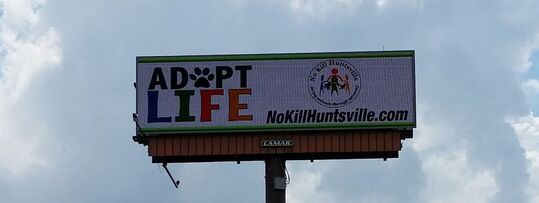





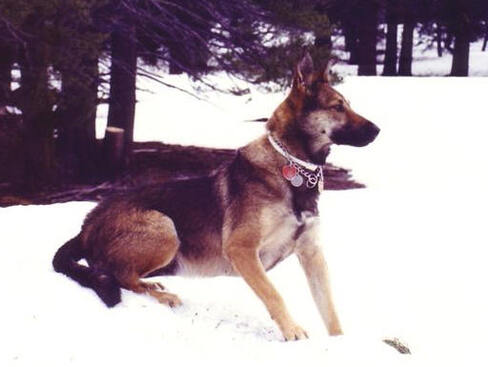
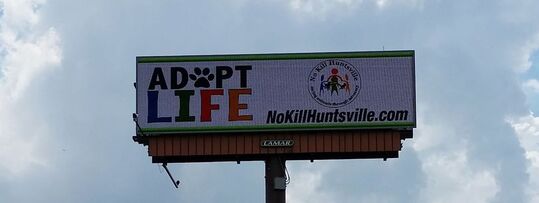
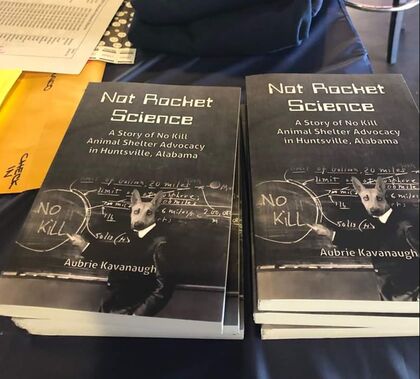

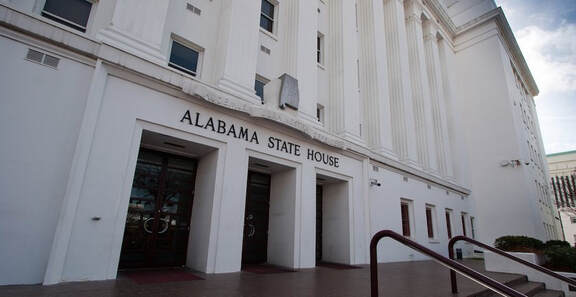


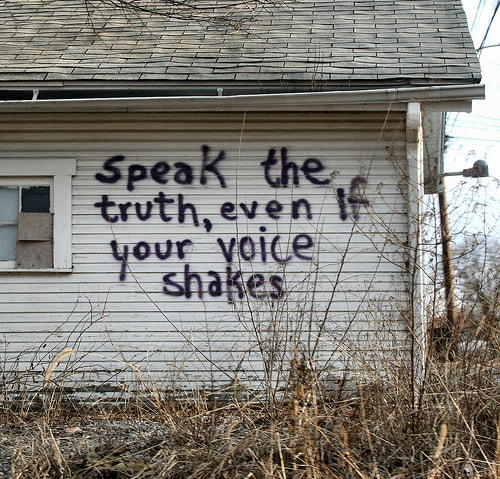
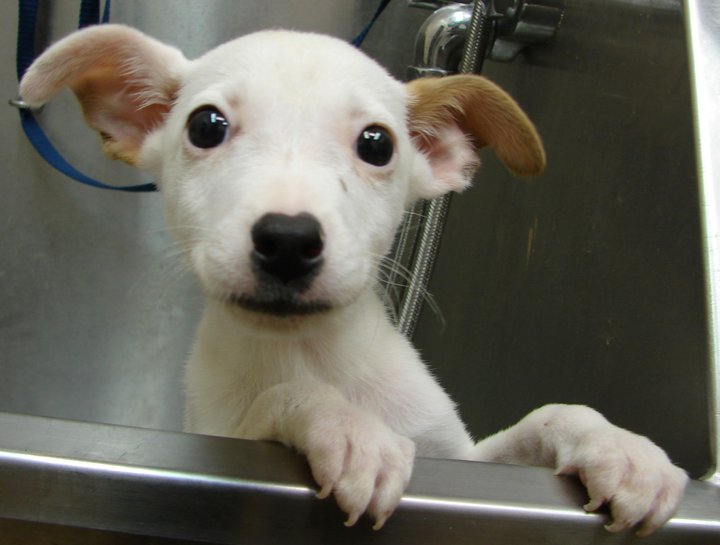
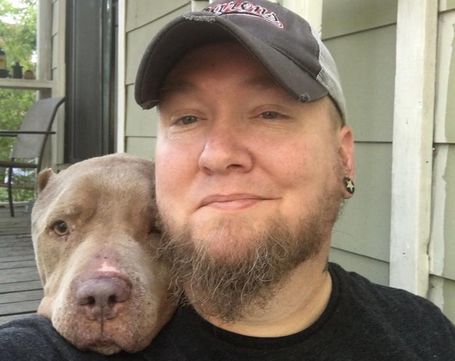

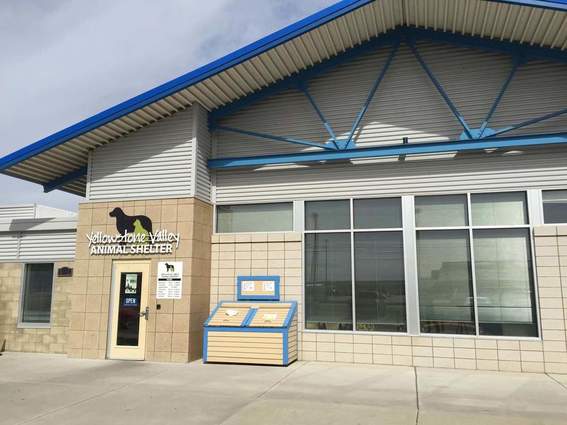

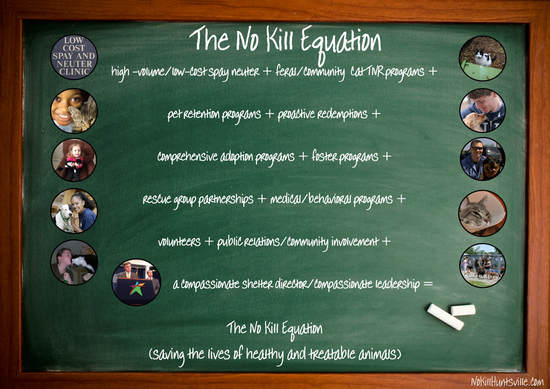
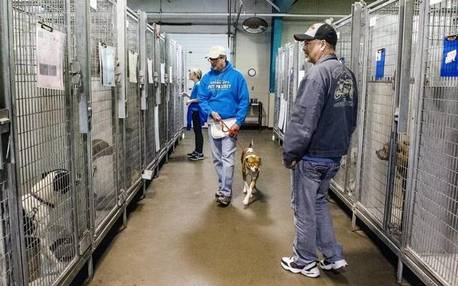
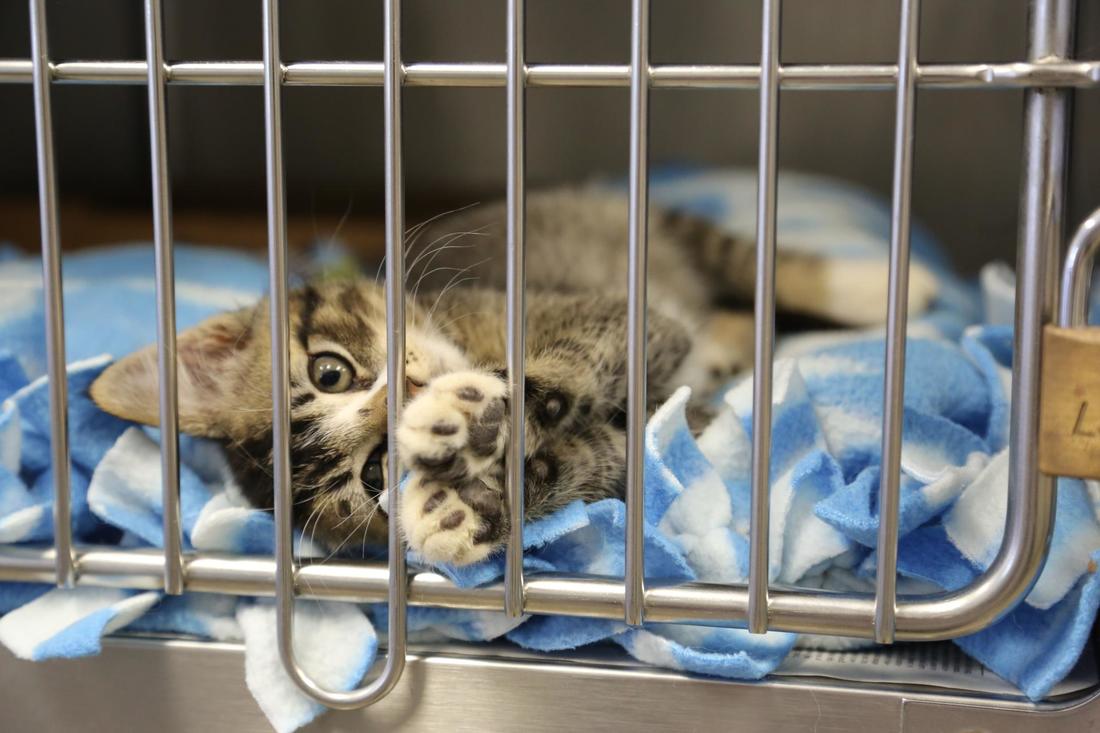
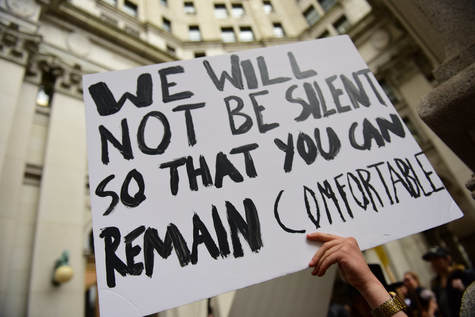
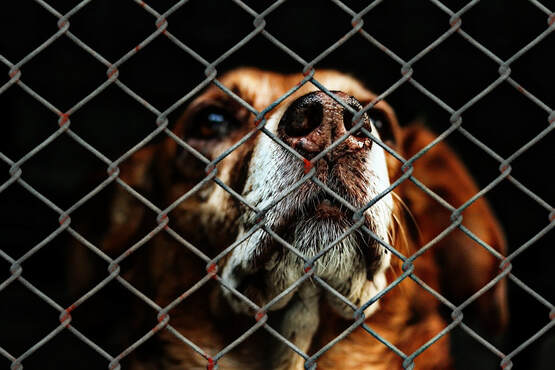
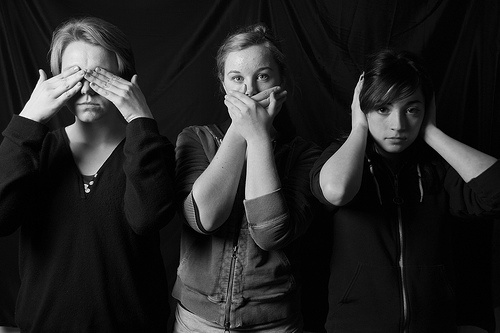
 RSS Feed
RSS Feed